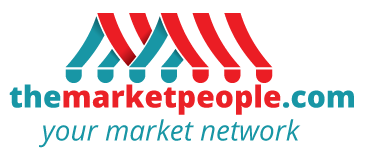Our Mission Statement
Our Mission is to modernise the industry by facilitating the stakeholders' access to the services digitalisation provides and by delivering the platform, which will empower the industry and small businesses, with the tools they need to compete with other forms of retail.
In our endeavour to implement this platform we have encountered many difficulties, making us to realise that, perhaps, the majority of the issues, the industry faces, are due to the variety of perspectives, interests, and goals, held by the different stakeholders. They act as four horses trying to move a cart by pulling it in opposite directions. Each is pulling harder and harder, trying to reach a ball of hay which is standing meters away from them and not be able to move an inch. "If the well being of so many people was not at stake it will be funny"
Our objective, in this context, it is to make these four horses pulling in the same direction, knowing that their goals will remain the same, their mindset will not change and they will probably never totally understand each other. To achieve this the only logical solution is to put all the balls of hay in the same place. How does this translate for the industry? How can we make this happen. by providing a digital platform?
The current situation
As a retail force, markets are governed by the same rules than large retailers: Customer satisfaction, reducing operating and administrative cost, good marketing strategy, good training of their sale force, and providing the infrastructure which will make they work as effortless as possible. Big retailers naturally have a coordinated strategy. When they are applying these rules it's for a common goal: "the success of the company". Not in the market industry! The execution of these rules is unfortunately never coordinated since all are only concerned by themselves :
How are we addressing this issue
Because these balls of hay are heavy, we need suitable tools to move them. We are doing so by Identifying the actions of each user, when they are carrying out their duty and, how these actions can benefit other users when they are interacting with each-others. For example :
What do we need to succeed in our mission?
To move these balls of hay, we now need the Industry's stakeholders to register. They only have to do this once, but, this is requiring a minimum of efforts from each of them and In some cases a subscription fee will apply:
.When using the platform, the registered users are benefiting from a system which simplify their work and which is effective for the other stakeholders, creating a synergy which will trigger growth. Success is a catalyser; hopefully, the people will start realising that by considering each other's problems, and finding solutions which are helping everyone, they are progressing themselves. Perhaps, slowly their mindset and perspective will change.
A very big thanks for the whole of you who have reached the end of this page.
